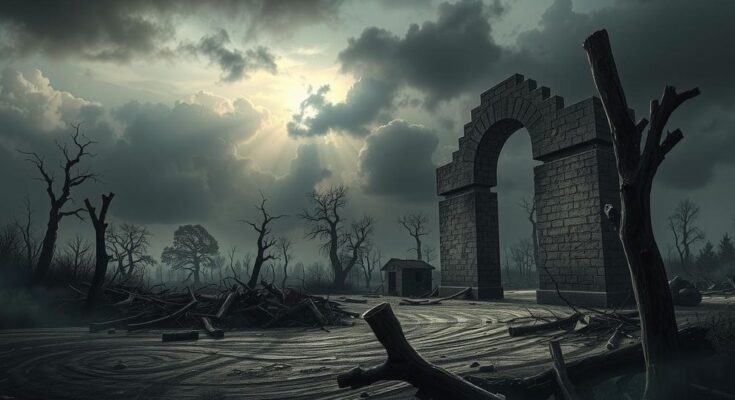The DRC is witnessing renewed conflict as M23 rebels advance on Kinshasa, reportedly with Rwandan support. Uganda has intensified military presence in the region, leading to fears of a larger regional war akin to past conflicts. The situation is compounded by historical tensions and resource exploitation, with calls for national dialogue essential for peace.
The Democratic Republic of the Congo (DRC) is once again facing escalating conflict as M23 rebels advance toward Kinshasa. Recent captures of key eastern cities, Goma and Bukavu, have led to civilian unrest and a humanitarian crisis. The United Nations has reported that the M23 group is allegedly supported by Rwanda, which complicates the regional stability.
In addition, Ugandan military deployment has increased along the DRC border, citing a need to combat other armed groups like the Allied Democratic Forces (ADF) and CODECO. This situation has been exacerbated by violent CODECO attacks on civilians, prompting Uganda to reinforce its military presence in the area.
Experts fear the resurgence of Rwandan and Ugandan troops may echo the dark history of the Second Congo War, which resulted in immense loss of life and socio-economic devastation. Paul Nantulya of the Africa Center for Strategic Studies compares current events to past conflicts, noting that international involvement could escalate the situation further.
The DRC has endured decades of low-intensity conflict exacerbated by ethnic tensions, disputes over mineral resources, and external interference. Rwanda’s actions during previous wars stemmed from national security concerns and the desire to counteract anti-Rwanda sentiments among Congolese rebels. Uganda’s history of involvement dates back to the same period as both countries aimed to reshape the political landscape of the DRC.
Despite the shift in leadership in the DRC since the end of the Congo wars, ongoing violence and exploitation of natural resources remain prevalent. Reports indicated unlawful resource appropriation by foreign entities during the initial wars, with certain individuals linked to political leaders profiting from illicit activities.
The International Court of Justice ruled in 2022 that Uganda must compensate the DRC for damages, while ongoing legal actions reflect the persistent tension between these nations. Analysts emphasize the need for robust negotiations among DRC neighbors to stabilize the situation and alleviate humanitarian concerns.
Amidst renewed conflict, local leaders like Corneille Nangaa are emerging, aligning with M23 amidst political discord in Kinshasa. Despite Uganda’s historical ties to M23, it publicly denies involvement, leading observers to question its intentions in the region.
The DRC’s immense natural resource wealth continues to be a focal point of conflict, with M23 profiting significantly from illicit gold mining operations, which raises concerns about their funding. To address the crisis, it is imperative to put pressure on the DRC government, reform military practices, and engage in national dialogue.
Analysts highlight that prioritizing the safety and well-being of Congolese civilians is crucial for restoring stability. Calls from the Kinshasa government for national dialogue offer hope for peace, while international authorities pledge to address human rights abuses within the ongoing conflict. As articulated by Kambale Musavuli, “the people of the Congo have to be alive so that they can rebuild the country for the benefit of the African continent. That is why DRC needs a break.”
The DRC is currently experiencing a resurgence of conflict with M23 rebels advancing toward Kinshasa, inciting fears reminiscent of its violent past. External support from Rwanda and Uganda amplifies the complexities of the situation, while local political dynamics and resource exploitation perpetuate the cycle of violence. It is critical for the international community to pressure for negotiations and prioritize the humanitarian needs of Congolese citizens, who are pivotal to any future peace and reconstruction efforts in the region.
Original Source: www.aljazeera.com




